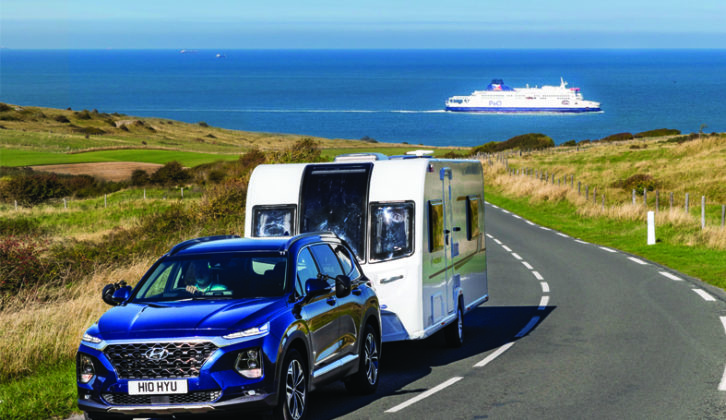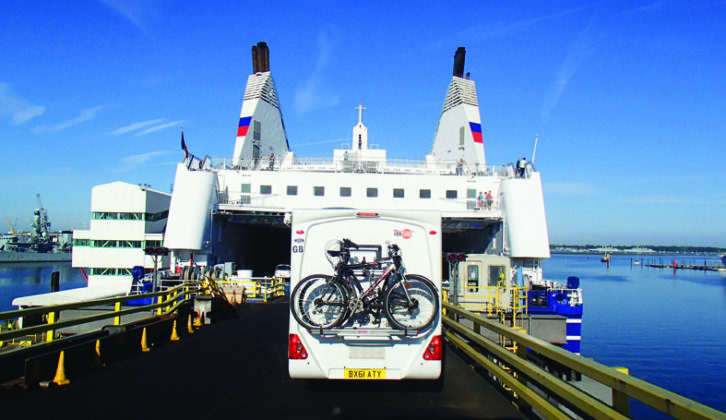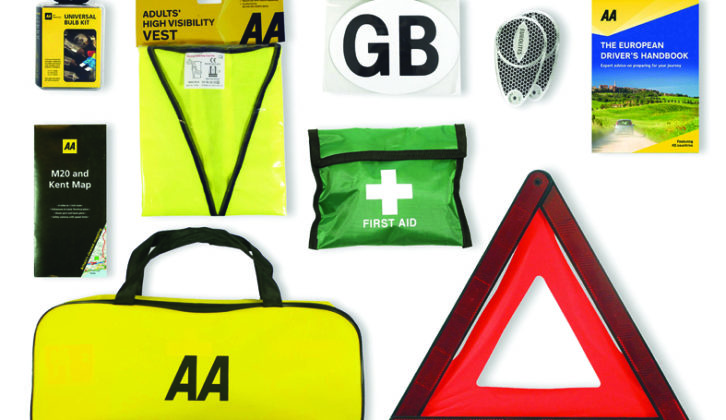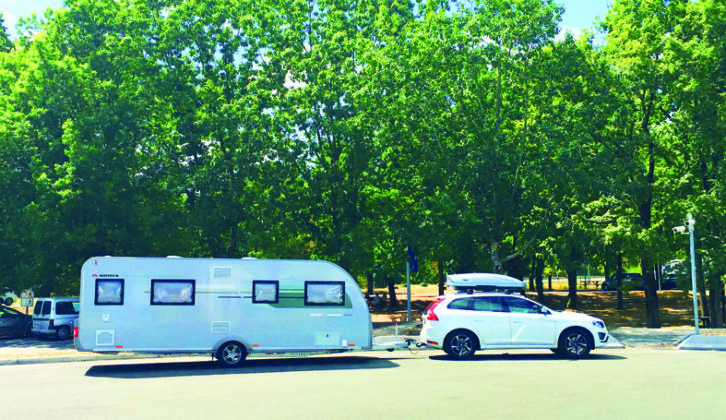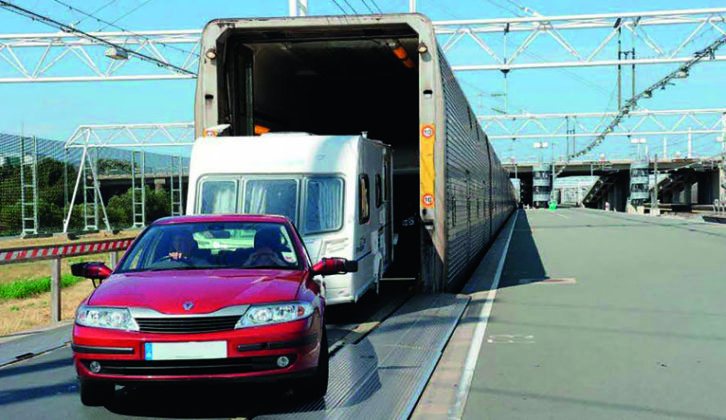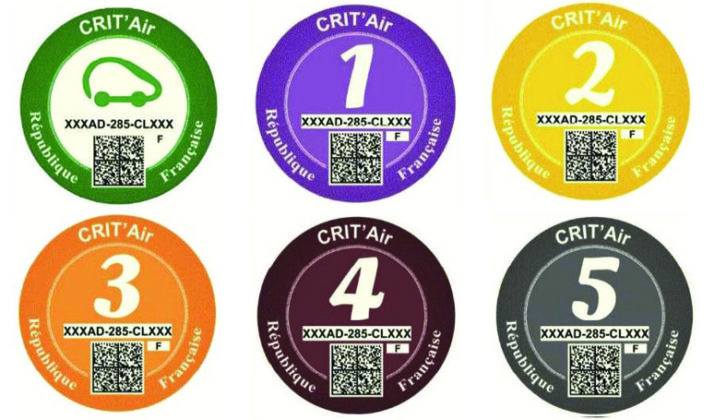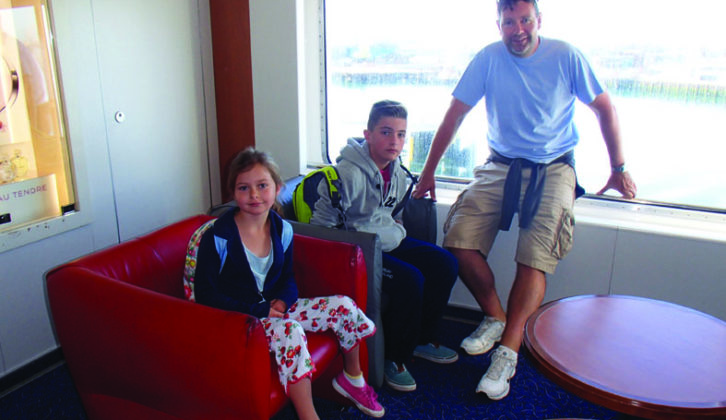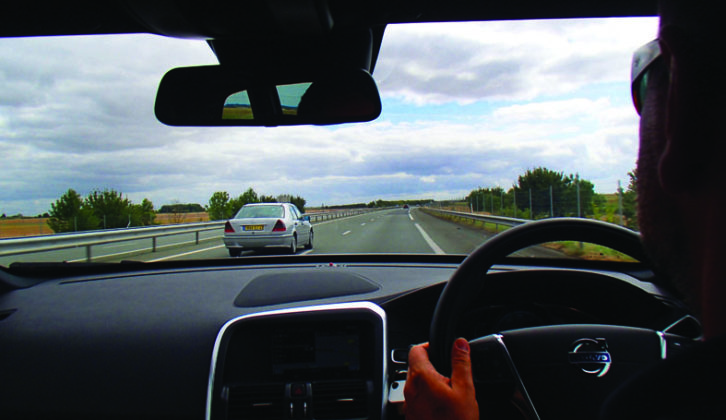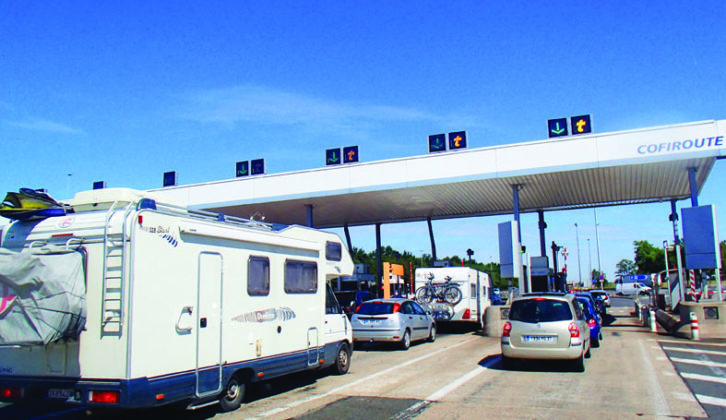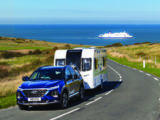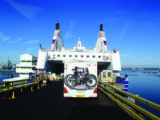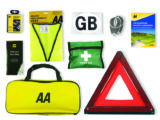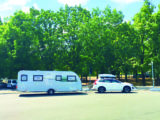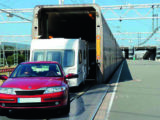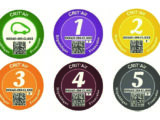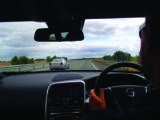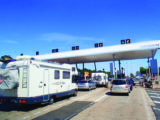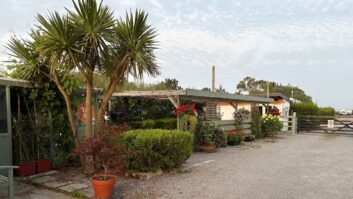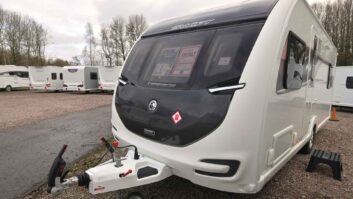Touring in Europe is sensational, but in these early months of the UK’s full Brexit withdrawal, travel abroad seems to have become more troublesome and (literally) more taxing. Much of this is down to Covid-19 but for those wishing to tour in Europe during the summer and beyond, some of the rules and regulations have changed, particularly for passports, health cover and travel insurance, driving abroad and pet travel. Use our Pain-Free Touring Guide to Europe that outlines the changes and how you can minimise their effect, to guarantee continued harmonious holidays in the sun.
Passports
British passports no longer offer the same unfettered access to the 27 EU countries that they provided before Brexit.
This means that you should check the validity of your passport on the Government website – it might need to be renewed six months earlier than you planned.
You should also bring yourself up to speed with the latest passport regulations.
You must have at least six months left on your passport to travel to EU countries, plus Switzerland, Norway, Iceland and Liechtenstein. This rule does not apply for travelling to Ireland, where you may continue to use any passport that is valid for the length of your stay.
These changes will affect many people, and there could be a rush to renew when Covid-19 restrictions are lifted, so check your passport in good time, and allow yourself two months to get it renewed.
It costs £75.50 to renew or replace your passport if you apply online (the speediest option), or £85 if you fill in and post a paper form. Children’s passports cost £49, but only last for five years. A (more expensive) express service is available in emergencies.
If you require more information, call the passport helpline on 0300 222 0000 (8am to 8pm Monday to Friday, 9am to 5.30pm Saturday-Sunday and UK bank holidays).
Long-term touring
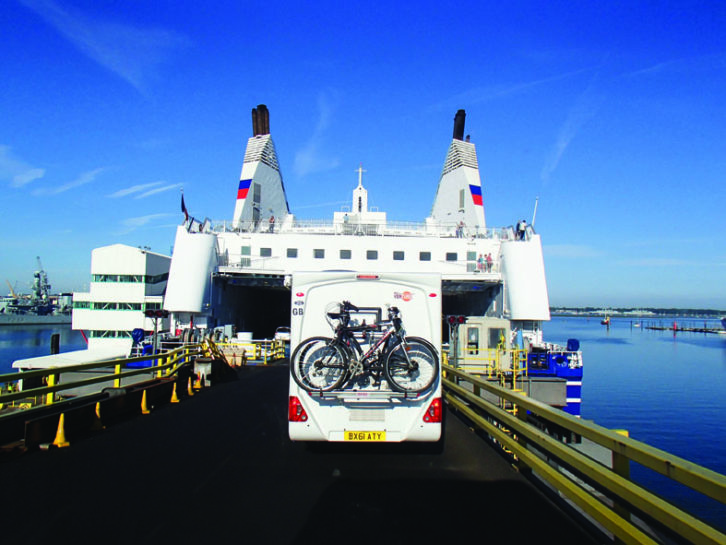
For those caravanners used to decamping to southern Europe for the entire spring and summer, the new regulations are going to limit that freedom.
UK visitors to the EU can now remain there for a maximum of 90 days in any 180-day period. Overstaying could result in fines, deportation, future entry bans and a stamp in your passport. For longer stays, you might need to obtain a visa.
Healthcare cover
If you’re caravanning anywhere in the EU, there is a reciprocal arrangement in place for travellers to receive free emergency health treatment.
The free European Health Insurance Card (EHIC) that provided this service is being phased out for UK citizens, post-Brexit, but will be replaced by the free Global Health Insurance Card (GHIC).
Your current EHIC will remain valid for as long as it is in date, and will continue to give you the right to access emergency state-provided healthcare while you are holidaying (or working temporarily) in EU countries. When your EHIC expires, simply apply for the new GHIC.
If you are travelling abroad and require treatment, but do not have a valid EHIC or GHIC you can obtain a provisional replacement certificate (PRC), which offers cover on a temporary basis.
You, or someone you know who is acting for you, can apply for a PRC by telephoning Overseas Healthcare Services (part of the NHS) on +44 191 218 1999 (8am to 6pm, Monday to Friday).
The new GHIC is available online and should be delivered within 10 days of your application. Be aware that there are numerous online businessss now offering to complete the very simple GHIC application form on your behalf – for a fee.
For example, a quick search on the internet for ‘GHIC’ delivered up one company that charges an administration fee of £29.98 to apply for your card for you (a two-minute job!). Put simply, you do not need to pay a fee.
In EU countries, having a valid EHIC or GHIC means that you will be covered for emergency treatment and A&E visits; treatment for longstanding/pre-existing medical conditions; routine medical care and monitoring, routine maternity care (as long as you are not going abroad to give birth) and dialysis.
However, neither the EHIC nor the GHIC should be considered as an alternative to buying travel insurance, which should still be purchased for every trip that you take.
Travel insurance
Check your caravan insurance, to see what European cover is included and whether you need to let your insurer know you are taking the van abroad.This also enables them to send you a multilingual document explaining that you have insurance.
You might find that your travel insurance costs have risen substantially in the wake of Brexit, so make sure you ring around for the best price, or use on of the online comparison sites, bearing in mind that the cheapest cover is rarely the best option.
Pet passports
British pet passports are no longer valid for travel in the EU, although those issued in the EU and Northern Ireland are valid. Pet travel requirements have changed, too, so contact your vet at least a month before your planned trip, to make arrangements.
To take your cat, dog (or ferret) to EU countries, your pet will need:
- A microchip
- A valid rabies vaccination
- An animal health certificate (or EU/Northern Ireland pet passport)
- Tapeworm treatment – if you’re travelling directly to Ireland and Northern Ireland (or (less likely) Norway, Finland or Malta.
These rules also apply to assistance dogs, and you will need to show proof of the above on entry to the country. You have to enter each EU country through a recognised Travellers’ Point of Entry, which include all of the main ports and the Channel Tunnel.
Mobile phone roaming
Roaming rules have changed since Brexit. Most providers say they won’t apply them, but check with yours before you travel.
Milk and meat
Be mindful that you can no longer stock your caravan fridge as you might have done before Brexit. Meat and milk, or products containing either, cannot be taken into the EU by British travellers, and must be purchased after arrival. Note that certain baby foods are exempt from this ruling.
Driving and towing in Europe
GB stickers
UK caravanners must clearly display GB stickers on the rear of their tow car and caravan. EU numberplates (with the circle of stars) do not need to be changed, but if your numberplates have GB on them (with or without a Union Flag), you don’t need a GB sticker in the EU.
The exceptions to this rule include the Republic of Ireland, where no GB sticker is needed when driving a UK-registered tow car, regardless of the type of numberplate it has. In Cyprus, Malta and Spain, you do need to have a GB sticker, regardless of the type of numberplate fitted.
However, from 28th September, you will require a new UK sticker to be displayed, and upgrade to a new numberplate displaying a distinguishing UK sign in place of GB. You can read more about this here.
Green Cards
When towing to Europe, UK drivers must obtain a motor insurance Green Card. This regulation includes the Republic of Ireland, Andorra, Iceland, Liechtenstein, Norway, Serbia and Switzerland. Green Cards are usually free, and provided by your insurer. Contact them to request one, listing all of the countries you’ll be visiting. Note that when entering an EU country, you must have 15 days remaining on your Green Card.
Your UK car insurance policy gives you a minimum of third-party protection in EU countries. Check with your provider that your UK comprehensive/fire and theft cover extends to the EU.
If you drive abroad regularly, these details should be factored into your initial insurance-buying decision, because cheaper policies may not offer the best EU cover.
Company car users should request a free VE103 vehicle-on-hire certificate from the leasing firm, and make sure to keep it in the tow car at all times while you are abroad.
International Driving Permits
British drivers with a UK card licence do not need an International Driving Permit (IDP) to drive in the EU, Switzerland, Norway, Iceland or Liechtenstein.
Those with a paper licence – or a licence from Gibraltar, Guernsey, Jersey or the Isle of Man – should carry an IDP when driving in the EU and Norway.
There are three different types of IDP, so it’s advisable to visit gov.uk.driving-abroad/international-driving-permit to check which one you will require.
Accidents in the EU
If you are a frequent visitor to EU countries with your caravan, when buying your annual car insurance, find out whether a proposed insurer will deal with the claim/paperwork if you are involved in an accident abroad.
Previously, your insurer provider or the Motor Insurers’ Bureau (MIB) would deal with any claim on your behalf, but after Brexit, you might find yourself having to deal with foreign insurers.
The MIB has also negotiated a reciprocal deal with 29 of the 30 European Economic Area countries (a deal with Romania has been delayed). This means that if you are hit by an uninsured driver while driving abroad, you will be able to access a fund to cover your financial losses.
Speeding fines
British citizens can no longer be pursued across borders for speeding infringements caught on camera. However, EU police can issue on-the-spot fines, and the French government is seeking to establish a new cross-border-fining deal with the UK.
Documentation
You should continue to carry your full driving licence (and photo ID if you have a paper licence) with you at all times.
In addition, take a V5 vehicle registration document. It’s advisable to keep photos of all documents on your phone, and to consider storing copies on an online hub.
If you are stopped and can’t pay any fine on the spot, the police might confiscate your V5 until you return to pay it.
Checklist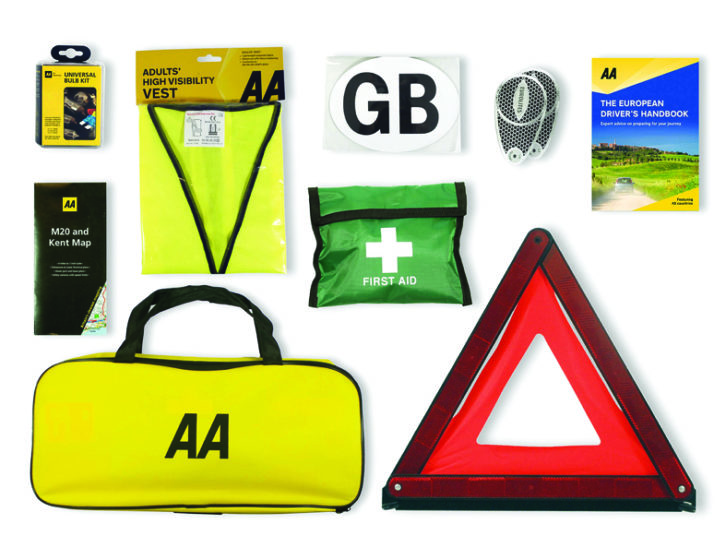 ESSENTIAL DOCUMENTS AND EQUIPMENTHere’s a list of key items you could need for touring in the EU. Although requirements will vary slightly from country to country, it may be wise to take all of these, to ensure that you are not issued with a hefty fine while you’re away, owing to an oversight.
IN-CAR ESSENTIALS
European traffic police are (rightly) uncompromising at the best of times. Following Brexit, we strongly recommend that you abide scrupulously by all of the regulations, to avoid any prolonged and expensive stopovers at their pleasure! OTHER THINGS TO CONSIDER
|
Top tips for trouble-free EU touring
Be sure to take enough gas for the duration of your holiday. Continental gas bottles are not compatible with UK ones. For longer breaks, consider taking a Continental pigtail adapter, because you can then pick up a Euro-fit cylinder at a service station or DIY store.
Be sensible about distances that you can tow each day, especially after an early start. For example, when we are crossing to Caen and towing south, we aim for Le Mans or Tours. We like Compiègne if crossing to Calais or heading to Paris. All three are great places to explore and have dinner!
Choose your Channel crossing carefully, and bear in mind price, distance and practicality. For example, fans of Spanish touring should think about how valuable it might be to gain an extra day or two at your destination by travelling with Brittany Ferries to Bilbao or Santander. Of course, some may prefer a leisurely road trip through France. The longer crossing isn’t cheap, but you’ll save on fuel, tolls, towing, time and campsites en route.
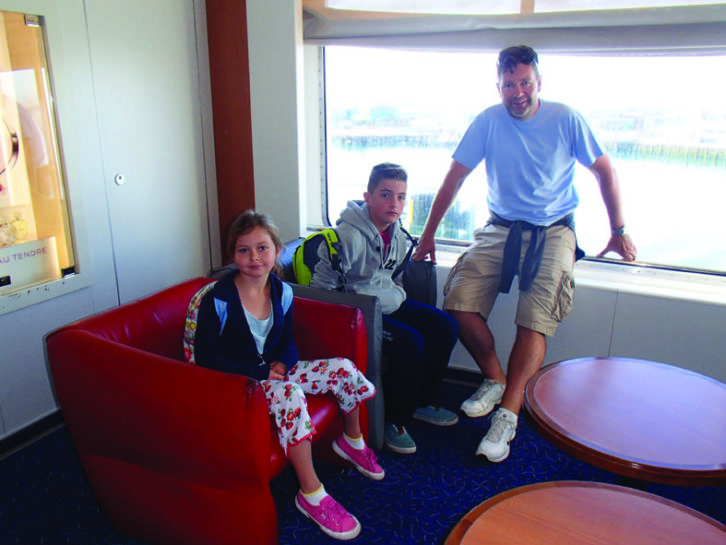
For a long tow to your holiday destination, plan to leave a day or two ‘spare’ at the end of the trip, and keep an eye on the weather forecast for a few days before the return journey.
When driving or towing in Europe during the summer, try to stay off the roads around the major holidays. In France, for example, Bastille Day (14 July) and Assumption Day (15 August) are best avoided. The roads can become extremely congested on and around these days, just like bank holidays in the UK.
If you want to reach your French destination quickly, the fastest routes are the Péage toll motorways. These are generally quite quiet, allowing you to make good progress. However, they are expensive. Expect to pay around £100 in tolls to cross France from north to south.
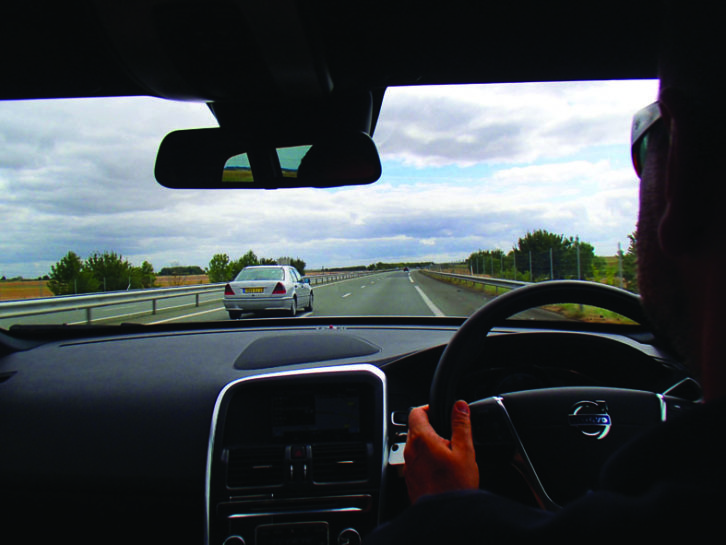
Buy good-quality breakdown cover that includes all of the countries you might visit on your tour. The Caravan and Motorhome Club and The Camping and Caravanning Club both offer excellent breakdown and repatriation cover.
If you’re taking an extended holiday, be aware that many home insurance policies don’t protect properties that are left uninhabited for more than 30 days. It’s advisable to check your cover before you go.
Find out about the ‘towing’ speed limits of any country you plan to visit – there are significant differences.
If you’re heading south, or expecting hot weather on tour, pack a fan or air-con unit to help you get a good night’s sleep. Portable fans are cheap, while air-conditioners are more expensive (and heavier).
When abroad, always carry a copy of any NHS prescriptions members of the party may have.
Use Google Earth and Street View to plan your journey, with approaches to sites and so on.
If you prefer to avoid towing down narrow medieval streets, it’s well worth considering a caravan-specific sat nav.
Bear in mind that devices warning drivers of speed camera locations are illegal in France.
For a more leisurely and picturesque touring experience, try taking the Routes Nationales, which are more like British A roads, and have the added bonus of frequent boulangeries and patisseries! You can stop to enjoy lunch, in a pretty town, with the money that you save on road tolls.

Some fixed-distance Péages require payment when you join them, but most have tickets at the start and pay-barriers at the end. Often these are automated, so if you get stuck at the barrier, it can be very stressful, and may require a long reverse between concrete walls. Certain credit/debit cards are not accepted at the barriers, so it’s advisable to keep some cash in the car fo such emergencies.
If you can, avoid towing into the tollbooth bottleneck, between the concrete walls, until the vehicle ahead has left. Just in case they get stuck!
Keep the key dimensions of your outfit on a sticky note on the vanity mirror. Especially the van height.
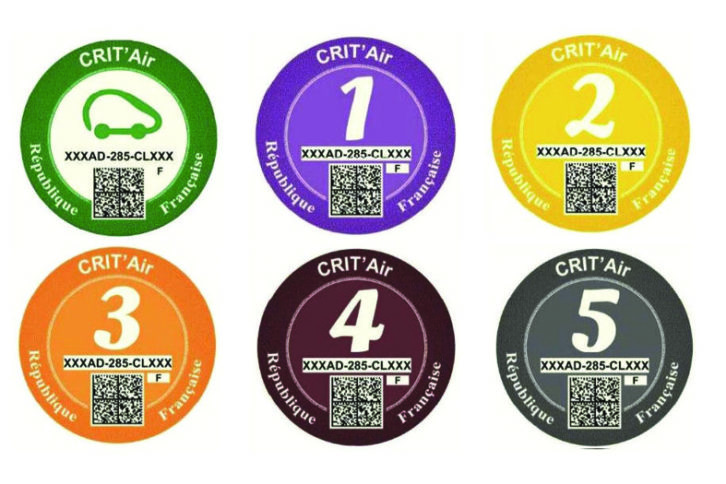
An increasing number of European countries now have low-emission zones (LEZ) to improve air quality in major cities. These restricted zones apply to visitors, too, and you must not be caught driving through an LEZ without the correct documentation sticker, because you’ll risk a fine.
In Italy and Spain, if the total length of your outfit (tow car plus caravan) is over 12m, you’ll need to fit ‘long vehicle’ marker boards on the rear of your van. These red-and-white reflective panels measure 50cm by 50cm. Only the biggest van and car combos should exceed 12m, for example, a Range Rover and the largest six-berth caravan.
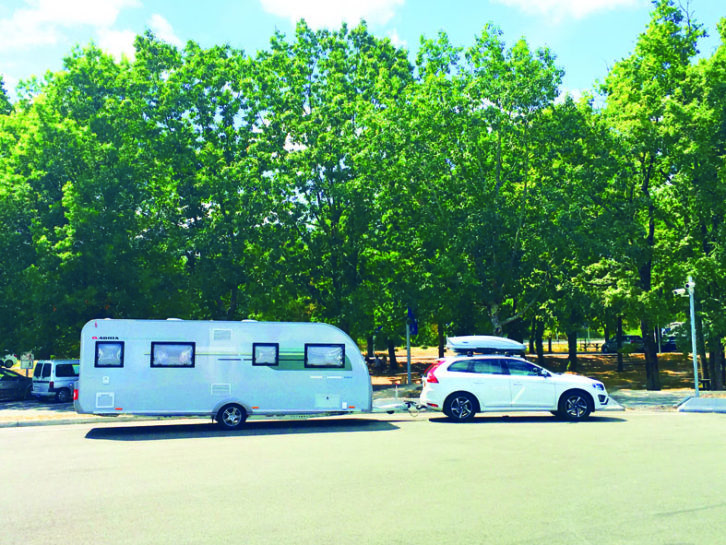
If you’re checking your tyre pressures while touring on the Continent, bear in mind that there are 14.5psi to one bar.
Remember that you must use E-marked towing mirror when touring on the Continent.
For travelling on motorways in Austria and Switzerland, you require a windscreen sticker, known as a Vignette. These are available at the border or online in advance of your journey.
If you liked this… READ THESE:
Top towing tips for safe travels
If you’ve enjoyed reading this article, why not get the latest news, reviews and features delivered direct to your door or inbox every month. Take advantage of our brilliant Practical Caravan magazine SUBSCRIBERS’ OFFER and SIGN UP TO OUR NEWSLETTER for regular weekly updates on all things caravan related.
Be mindful you can no longer stock your caravan fridge as you might have done before Brexit
